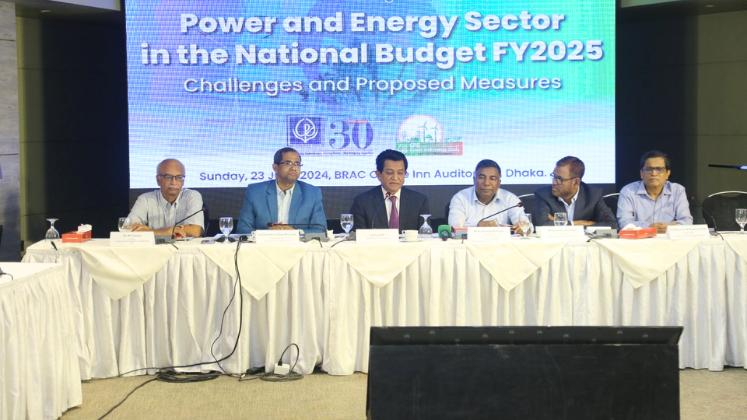
The Centre for Policy Dialogue (CPD) has said that the budget for the upcoming fiscal year has not taken the necessary steps to ensure energy sustainability, and because of that it may not be able to end the ongoing gas crisis, reduce dependency on imports, and assure a reliable supply of power.
Rather, by supporting coal-based power generation and establishing too high-power consumption objectives, it promotes anti-sustainability measures, it claimed.
The findings came from a CPD study on the energy and power industry. The results were showcased at a BRAC Centre Inn in Dhaka during an event titled Power and Energy Sector in the National Budget FY ‘2025: Can the Proposed Measures Address the Challenges?
The budget was presented at a time when Bangladesh is struggling to produce enough gas from local fields to meet domestic demand despite significant hydrocarbon potentials, both onshore and offshore.
As a result, it has been compelled to purchase pricey liquefied natural gas (LNG) on foreign markets in recent years. But as LNG prices shot up around the world, the Government had to reduce its purchases to preserve foreign cash, which severely damaged manufacturers.
In addition, even though it has a massive coal reserve, it nevertheless purchases fuel for its coal-fired power plants from outside markets.
“This budget is not the kind of budget needed for sustainable energy and energy transition,” said CPD Research Director Khondaker Golam Moazzem while presenting a keynote paper.
Moazzem described the government’s decision of not allocating fresh funds for fossil fuels as positive. “The budget should reiterate the Government’s commitment to phase out old, dated, and expensive fuel-based plants.”
The power and energy sector is faced with six main challenges, according to Moazzem: increasing generation capacity; ongoing load-shedding; slow progress on transmission and distribution system projects; lack of focus on expanding renewable energy; inability to import energy; and ongoing financial losses for public entities.
He said some important issues that required distinctive fiscal measures have not been addressed in the budget. These include the phase-out of fossil fuels, the retirement of rental and fast-rent power plants, the cessation of capacity payments, and the provision of incentives for renewable energy.






